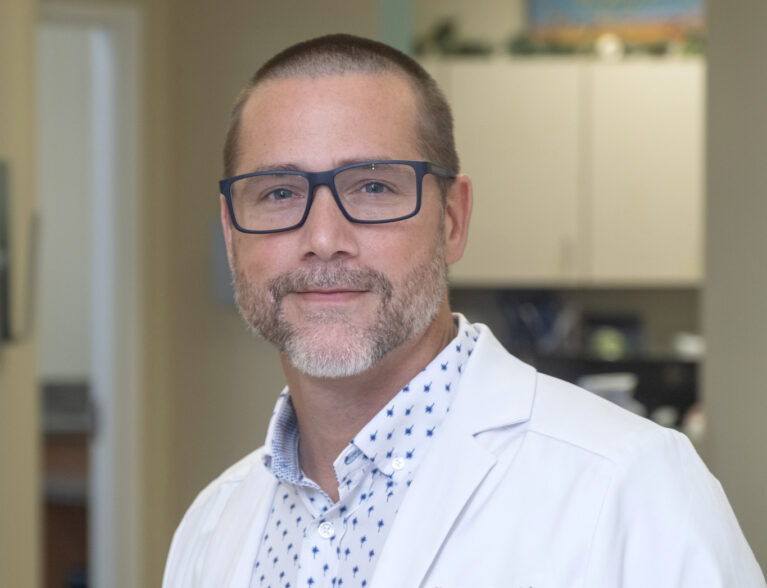
If you are seriously overweight and need to lose lots of pounds, which is better – bariatric surgery or GLP-1 medications like Wegovy, Ozempic and Zepbound?
Either can result in significant weight loss and improve conditions like Type 2 diabetes, high blood pressure and sleep apnea. Both also come with trade-offs.
The best choice depends on your health, your goals, your budget – and your level of commitment.
“There’s really no wrong choice,” said Dr. Jason Radecke, a bariatric surgeon with HCA Florida Lawnwood Bariatric Specialists. “It depends on what you want to achieve. Bariatric surgery typically leads to a 35 to 50 percent loss of total body weight in a year to 18 months. GLP-1 medications usually result in a 12 to 20 percent weight loss in the same time frame.”
That means a 300-pound person might lose as much as 60 pounds with medication but could potentially drop 100 pounds or more with surgery.
“If your goal is to lose more than 40 to 50 pounds, GLP-1s might max out before you reach it,” Dr. Radecke explained. “Plus, if you’re on medications for blood pressure, cholesterol or diabetes, GLP-1s add one more prescription. Surgery, on the other hand, often reduces or eliminates the need for these drugs.”
Bariatric surgery includes procedures like gastric bypass and sleeve gastrectomy that reduce the size of the stomach. It’s typically recommended for patients with a body mass index (BMI) of 40 or higher, or 35 with obesity-related health issues.
Weight loss from surgery can be long-lasting. A recent meta-analysis of more than 50 studies published by the National Institutes of Health found that “all current bariatric procedures are associated with substantial and durable weight loss.”
Many patients see diabetes go into remission, blood pressure normalize, and sleep apnea disappear. Quality of life often improves significantly.
However, surgery is irreversible and comes with risks, including complications, nutritional deficiencies, and the need for lifelong lifestyle changes.
GLP-1 receptor agonists like semaglutide (Wegovy, Ozempic) and tirzepatide (Zepbound) mimic a natural hormone that regulates appetite, digestion and blood sugar. For many, weight loss is substantial and sufficient – up to 20 percent – without ever going under the knife.
But there’s a catch – these medications must be taken regularly, often indefinitely. Once you stop, weight usually returns. Side effects can include nausea, fatigue and gastrointestinal distress.
And the cost is steep – often $1,000 per month without insurance coverage.
“About 70 percent of people stop using GLP-1s within the first year due to side effects, cost, or achieving their goal weight,” said Dr. Radecke. “Unfortunately, 80 to 90 percent of those who stop will regain the weight within six months.”
GLP-1 medications suppress hunger and cravings by slowing digestion. But once the medication is stopped, old behaviors and food cravings often return.
“Surgery patients have an initial period where their GLP-1 levels are naturally high, so they’re not hungry either,” said Dr. Radecke “But even when cravings return after a year or two, they’re limited by the smaller size of their stomach. They physically can’t eat as much.”
For people hesitant about surgery, GLP-1s can be a great starting point. But if the ultimate goal is to reverse chronic health conditions and eliminate daily medications, surgery often offers the best odds of success.
“After weight-loss surgery, there’s a 70 to 75 percent chance you’ll come off your sleep apnea machine, the same for blood pressure meds, and a 90 percent chance you’ll be off cholesterol meds,” Dr. Radecke explained. “For diabetes, there’s a 70 to 85 percent chance you’ll no longer need medication. Compare that to only about a 33 percent chance with GLP-1s alone.”
Cost is a major consideration. While GLP-1 medications are less invasive, they are also expensive. Unless you have diabetes or heart disease, many insurance providers – including Medicare – won’t cover them.
In contrast, weight-loss surgery is increasingly covered by insurance for those with a BMI above 35 and related health issues.
There’s also the question of long-term safety and effectiveness.
“We have 70-plus years of data on weight-loss surgery,” said Dr. Radecke. “We know the outcomes, the risks and the long-term effects. GLP-1s are newer, and while early results are promising, we don’t have decades of data yet.”
Regardless of the method, the biggest challenge is long-term weight maintenance. That’s why ongoing support, education and lifestyle changes are essential no matter the path you choose.
“Surgery or meds alone won’t do it,” Dr. Radecke emphasized. “In 200 years of studying weight loss, the single most effective factor in keeping it off is physical conditioning. Nutritional education and regular exercise must be part of the plan.”
If you’re struggling with weight and considering your options, have a candid conversation with your doctor. Look at your health conditions, weight-loss goals, financial situation and lifestyle.
The best choice isn’t about which treatment is better – it’s about which one is better for you. Whether it’s surgery, medication or a combination of both, the goal is the same: to live a longer, healthier, happier life.
Dr. Jason Radecke is a fellowship-trained bariatric and minimally invasive surgeon with HCA Florida Lawnwood Bariatric Specialists. He completed his fellowship at the University of South Florida in Tampa. He completed medical school at the Medical University of South Carolina in Charleston and his surgical residency in General Surgery at Union Memorial Hospital in Baltimore. His office is located at 2402 Frist Blvd., Ste 202, Fort Pierce. Call 772-297-5509 to schedule an appointment.



